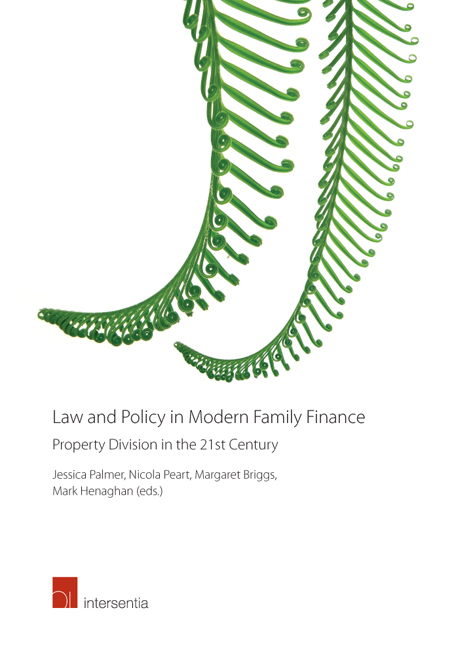Book contents
- Frontmatter
- Foreword
- Acknowledgements
- Contents
- Table of Cases
- List of Contributors
- Chapter 1 Introduction
- PART I WHO SHOULD BE COVERED BY A PROPERTY SHARING REGIME?
- PART II WHAT PROPERTY SHOULD BE COVERED BY A PROPERTY SHARING REGIME?
- Chapter 7 Classifying Relationship Property – A Radical Re-Shaping?
- Chapter 8 What to Do about Trusts?
- Chapter 9 Should Indigenous Property be Relationship Property?
- Chapter 10 Valuation of Relationship Property: An Evaluation of Practice and Procedure
- PART III HOW SHOULD PROPERTY BE SHARED AT THE END OF A RELATIONSHIP?
- Index
Chapter 7 - Classifying Relationship Property – A Radical Re-Shaping?
from PART II - WHAT PROPERTY SHOULD BE COVERED BY A PROPERTY SHARING REGIME?
Published online by Cambridge University Press: 29 September 2018
- Frontmatter
- Foreword
- Acknowledgements
- Contents
- Table of Cases
- List of Contributors
- Chapter 1 Introduction
- PART I WHO SHOULD BE COVERED BY A PROPERTY SHARING REGIME?
- PART II WHAT PROPERTY SHOULD BE COVERED BY A PROPERTY SHARING REGIME?
- Chapter 7 Classifying Relationship Property – A Radical Re-Shaping?
- Chapter 8 What to Do about Trusts?
- Chapter 9 Should Indigenous Property be Relationship Property?
- Chapter 10 Valuation of Relationship Property: An Evaluation of Practice and Procedure
- PART III HOW SHOULD PROPERTY BE SHARED AT THE END OF A RELATIONSHIP?
- Index
Summary
INTRODUCTION
The New Zealand Property (Relationships) Act 1976 (‘ PRA ‘) is sometimes described as one of deferred community. It usually operates when couples separate or one of them dies, and thus its impact is ‘deferred‘ or delayed until a crystallising event. A critical step is determining what constitutes the ‘community‘ property, that is, what property is available for division. This is the ‘classification‘ issue. Under the PRA, the distinction is drawn between ‘relationship property‘ and'separate property ‘, the equal division rule applying to the former and not the latter. This is simplistic because the court has power in some situations to make orders affecting separate property, but we put that to one side for present purposes.
The key classification rules are found in sections 8 – 10 with the definitions provided in section 2. In many respects these provisions are opaque and confusing. They are possibly the most complex in the world. The underlying philosophy behind them is not spelt out, though it is possible to discern what it might be. While amendments made by the Property (Relationships) Amendment Act 2001 (NZ) in general extended the relationship property pool, they did so modestly and were largely tacked into the pre-existing structure. Can New Zealand not do a lot better?
The rules for classification should be based on appropriate principles. This chapter explores what these principles might be. Even so, the principles do not lead inexorably to just one model of classification. There is, I suggest, a spectrum of approaches to classification. The choices are stark at the edges but with a wide range of variations in-between. The implications of these options are many and varied but help us understand what is at stake. In this chapter, I recommend that New Zealand move to what is the left of the spectrum, as discussed later in Part III. It could be said that this involves taking the concept of partnership in the family law sense seriously.
- Type
- Chapter
- Information
- Law and Policy in Modern Family FinanceProperty Division in the 21st Century, pp. 153 - 176Publisher: IntersentiaPrint publication year: 2017



